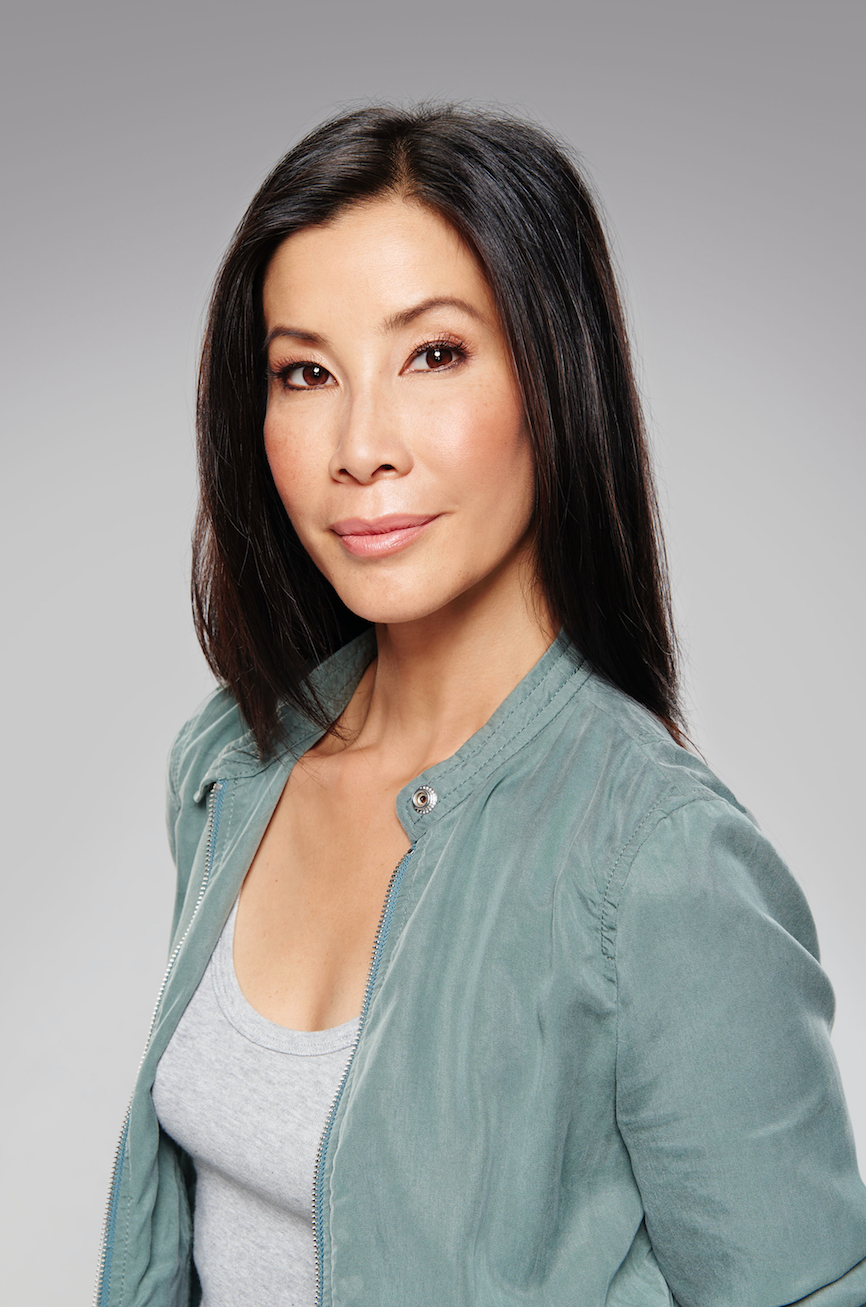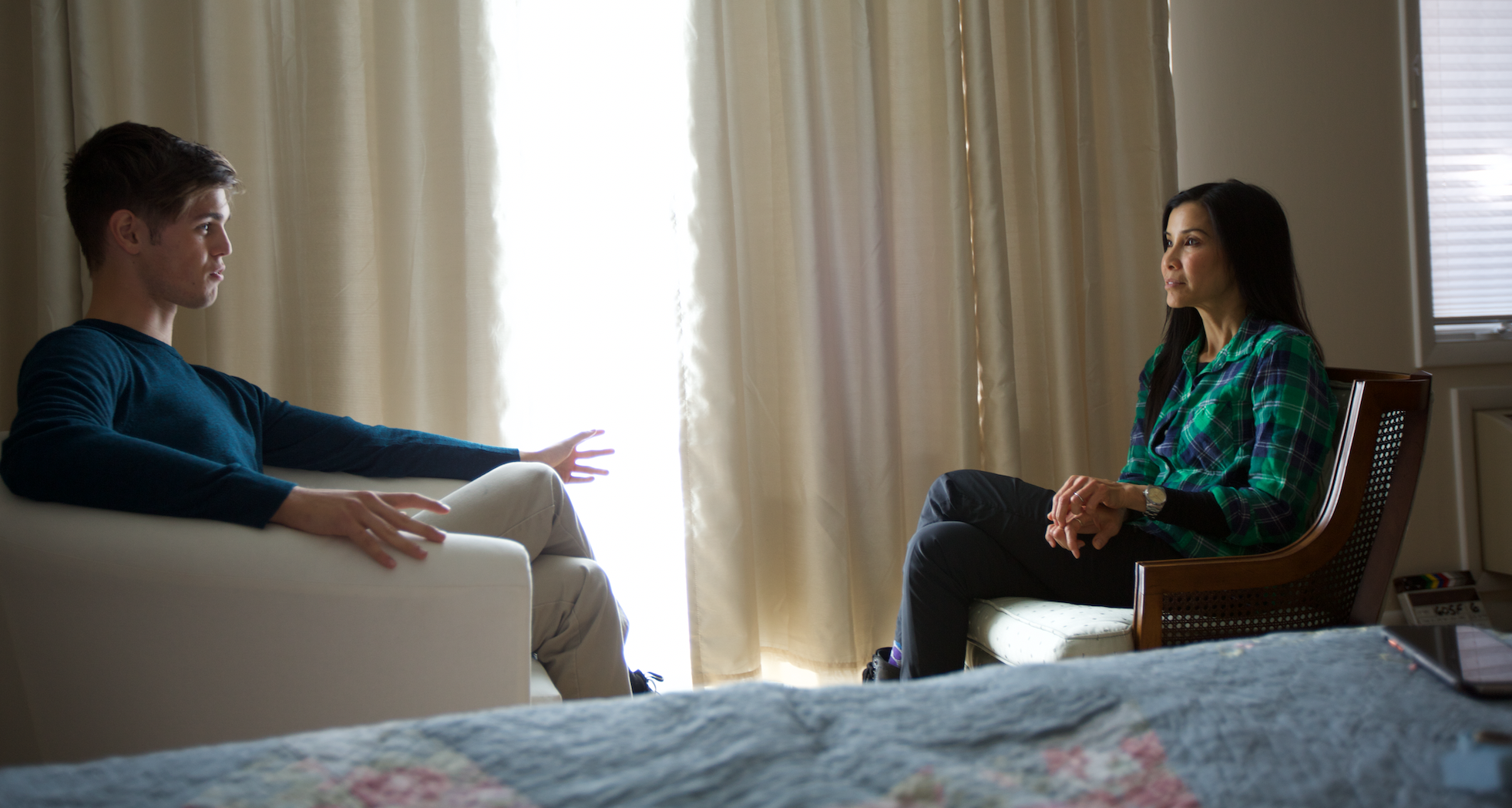Porn Ed: What Happens When Porn Replaces Sex Education?
September 27, 2019 by Justin Lehmiller
Adolescents today have greater access to a wider range of pornography than any previous generation. So how is it affecting them?
This question is the crux of a new episode of Lisa Ling’s CNN series This is Life titled “Porn Ed,” which premieres September 29. Ling wanted to better understand how accessibility to porn is changing the way adolescents and young adults think about sex and approach relationships.

I had a chance to preview the episode and sit down with Ling to discuss it. While there’s much that we agree on, including the idea that porn is not an effective substitute for sex education, there are some aspects of the episode that I worry could potentially leave viewers with the wrong impression of how porn impacts people, especially the idea that it is “addictive.” The show focuses on people’s personal opinions about and experiences with porn and doesn’t explore the science—in fact, no researchers or doctors are interviewed on screen during the episode. So while it’s certainly a thought-provoking show, there were some missed opportunities for a data-driven discussion.
Below is a lightly edited transcript of my conversation with Ling that focuses on the areas where we agree, but also the areas where science and medicine diverge from some of the things claimed by those who were interviewed in the episode.
Justin Lehmiller: In this episode, you interview people who see porn as a source of danger and problems, but you also talk to people like Cindy Gallop who see potential value in adult videos that are capturing real-life sex. When you put those different conversations together, what’s your take on whether porn itself is inherently good or bad, or is it neutral?
Lisa Ling: Our episode really isn’t a condemnation of porn. I do think that for some people, there may be value to porn. And I would never begrudge sex workers because I actually think that there are sex workers out there who are performing a real service. My big concern is just the abundance of material that’s out there—some of which is really extreme—and how easy kids can access it. You know, when you talk about what Cindy’s trying to do with her website, Make Love Not Porn, they are defiant about the fact that they are not porn. They are providing people with an experience of what real sex should look like. It’s not always clean and it’s sometimes messy. It’s sometimes funny. It sometimes doesn’t really work very well. And I do think that there is value in that. I do think that we should be exposed to how beautiful and meaningful sex can be. It’s part of who we are, right?
But at the same time, I do think that it’s incumbent on parents to start having those conversations with kids sooner. I think that kids need to understand that sex is part of who we are, that it can be just a pleasurable experience, that communication is really essential, and that what they are accessing is not reality. It’s entertainment for adults. There’s a lot that goes on behind the scenes that kids are never aware of.
That’s one of the reasons why we feature Tasha Reign, the adult film star, because she is on a mission to communicate to people that, before cameras even roll, they have a negotiation about consent and about what the men and women are willing to do. I think if we had a better sense of the fact that this is all artificial in many ways—it’s entertainment—kids may not think that’s reality.
Justin Lehmiller: You and I are on the same page that porn should not be used to replace sex education. And you’ve already talked a bit about the different ways that parents need to start approaching sex education with their kids. But I’m curious as to the role of schools in all of this. What do you think schools need to be doing differently when it comes to sex ed, specifically as it relates to porn?

Lisa Ling: I think it’s ultimately a parent’s responsibility, but we have to recognize that there are some parents who aren’t able to have those kinds of conversations, don’t want to have those conversations, may not have time to have those kinds of conversations…so we need to start having those conversations in schools. In California, for example, where I’m from, there is a very comprehensive sexual education curriculum. When I sat through one of the classes, I was even uneasy because I wasn’t used to having those kinds of conversations. But for the kids, it was just sort of like they didn’t even blink. They’re learning that this is a natural part of who we are and that there shouldn’t be any shame or humor around it—that it’s meant to be enjoyed and pleasurable, but we have to make sure that we are safe at the same time.
Justin Lehmiller: I think you’re absolutely right that kids do want to have these discussions, but it’s usually the parents who don’t feel comfortable initiating them. So where are they going to get that information? I think schools provide one potential avenue for that through, say, porn literacy programs.
Lisa Ling: I thought it was pretty impressive that in Boston public schools they have this sex ed curriculum that includes porn literacy. You know, some parents might go, “Why are my kids learning about porn in school?” Well, because your kids are probably watching porn in their bedrooms with the phone that you gave them. The moment your kid gets a phone or gets a mobile device, you got to start thinking about how to broach the subject with them because they’ve probably already seen things that they don’t understand that they think depict real sex.
Justin Lehmiller: Something I noticed in watching your episode is that you interviewed a lot of people, but you didn’t have any scientific or medical experts in the area of porn. I’m just curious—was there a reason or rationale behind not having one of them on to discuss it?
Lisa Ling: Our show is very much an experiential one and we have found that by immersing ourselves amongst people who are going through these things, I think we get a better sense of and we’re more relatable to viewers who may be experiencing similar things. And if they do feel somehow like they connect with the information that we’re giving them or the people that we’re profiling, then they can seek out that more professional or clinical information.
Like Alex Rhodes who started the NoFap website. He’s not a clinician or a therapist but he has half a million people on his website who say that they are suffering from pornography addiction. And pornography addiction hasn’t even been classified as an addiction. But because he’s experienced, he knows what has worked for him and what hasn’t and it’s become this forum for people to share exactly those things.
Justin Lehmiller: I’m glad that you brought up those points—that porn “addiction” is not a recognized medical or psychological diagnosis and that Alex Rhodes is not a clinician, but he is offering services sort of treating this as an addiction. This is one of those areas where when you look at the research, it’s not at all definitive in saying that porn is addictive, and so I worry a little that in highlighting what Rhodes is doing and the big following he has, that people might walk away thinking that it is an addiction when the actual medical community is not there based on the research.
When you look at a lot of the data in this area, what we often see is that porn is more the symptom rather the cause of a lot of the issues people are experiencing. For example, they might have generalized sexual anxiety or moral conflicts, and those might really be the underlying cause. So to put this in the form of a question, what’s your take on the idea that we might be scapegoating porn because it’s an easy target rather than dealing with the underlying issues that might be driving people to porn in the first place?
Lisa Ling: You know, I am also not a clinician or a therapist, but if you talk to any pediatrician or you talk to a lot of parents, the moment their kids become exposed to pornography and how easily it’s accessible, whether they have underlying issues or not, it can cloud a young person’s judgment about what real sex is supposed to be like. And, you know, studies have shown that young people are having less sex than ever before. And one has to ask, “Well, what’s the reason for that?” Well, it’s probably because they can experience the extremes using their mobile devices. They don’t have to go through the anxiety of asking a girl out or dealing with rejection when they have everything that they need and more in their pocket, accessible at all times.
So for me to boldly assert that it’s an addiction, that’s not something that we do in our episode. But there’s a reason why NoFap, that website, has a half a million people that are desperate. They’re coming to this website desperate for help from what they believe is an addiction.
Justin Lehmiller: I get that they’re perceiving porn as the cause of their problems, but it might not actually be the problem for them. So by going to these websites and resources that are not based in science and data, they might not actually be getting the help that they need to really deal with those issues.
[Sidebar: Research suggests that porn access probably isn’t why young adults today are having less sex. Read my take on this idea here.]
Lisa Ling: That’s true. That’s certainly true. And you know, I think NoFap, is very clear or it asserts that it’s not a medically sanctioned website. But what it is is people sharing what has been working for them. I think one of the reasons why it hasn’t been deemed a certified, bonafide addiction is because it’s harder to get information about how to stop. Right? And so people have had to resort to seeking out information on their own and seeking support from people who are going through the same thing.
I mean, our second episode is about benzodiazepines—and these are some of the most widely prescribed medications on the planet, right? And doctors, in many cases, do not know how to taper people off of benzos. So what are people doing? They’re going to these non-medically sanctioned websites and getting information and learning these very meticulous taper methods that are saving their lives. None of them are medically sanctioned.
So if it’s working for people, and people are finding themselves in such a desperate situation, that they’re seeking out help and guidance from people they don’t even know because they’re not being offered the right kind of information from doctors, I mean, that’s kind of where we are with pornography. And also, let’s say you do believe you have an addiction and your insurance doesn’t pay for therapy. How are you ever going to get medical help when your insurance doesn’t cover it? You’re going to seek it out online amongst people who are dealing with the same things.
Justin Lehmiller: I think we’re in agreement that we want people to be able to get help and to know that the help is going to work. But there’s also a really big impediment for us to having the accurate medical knowledge we need about pornography, which is that there’s really no federal funding available for people who want to do research on porn. And so there is sort of this roadblock if we want a design interventions or treatments or, you know, just really study porn. This is why I think our knowledge base is so limited and why a lot of these non-scientific, non-medical platforms are taking off. It’s, in part, because they’re filling this void that is not currently being addressed because there just isn’t the funding to do the research we need.
Lisa Ling: There’s the funding we need to do the research. And most of our insurance will not pay for the therapeutic services that people might need to even figure out what may have spurred someone to seek out porn.
Justin Lehmiller: I think that’s a great point, that access to care is another big part of the issue that leads people to seek out these informal, non-medical platforms. With greater access to care, we could ensure that more people get the help they truly need, rather than feeling like their only option is to seek out information online that isn’t based in scientific research.
Now, given all of the people out there claiming that porn is “addictive” and fundamentally damaging, some are calling for bans on pornography and restrictions on porn access. Do you think that bans and restrictions are the answer to these problems or do you think it’s really more about improving sex education and sexual communication?
Lisa Ling: I think that we could ameliorate a good part of it by educating kids about what sex is really like and what it’s supposed to be like. I think that having those open conversations would do a lot for the issue—do a lot to alleviate some of the concerns. Porn is the only exposure some kids may be getting to sex. It’s inevitable that would skew your perception, you know? So I think opening up the dialogue would at least get us one step closer to having a more sort of normal perception of what sex is and what relationships should be.
Want to learn more about Sex and Psychology ? Click here for previous articles or follow the blog on Facebook (facebook.com/psychologyofsex), Twitter (@JustinLehmiller), or Reddit (reddit.com/r/psychologyofsex) to receive updates. You can also follow Dr. Lehmiller on YouTube and Instagram.
Image Source: CNN
You Might Also Like:

Dr. Justin Lehmiller
Founder & Owner of Sex and PsychologyDr. Justin Lehmiller is a social psychologist and Research Fellow at The Kinsey Institute. He runs the Sex and Psychology blog and podcast and is author of the popular book Tell Me What You Want. Dr. Lehmiller is an award-winning educator, and a prolific researcher who has published more than 50 academic works.
Read full bio >


